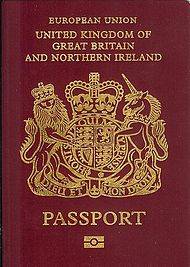Client Affairs
UK's Investor Visa Programme Draws Fire As Lawmakers Query Benefits

The UK's Tier 1 visa programme, aimed at wealthy investors, has come under fire.
The UK’s Tier 1 investor visa programme has come under assault in
the country’s upper legislative chamber, with some legislators
saying the system confers far greater benefit on recipients of
such visas than on their chosen destination.
While the market for what are called “golden visas” has been
expanding in recent years to include the likes of Spain, Malta
and Portugal, the UK’s own programme - requiring applicants to
invest at least £2 million - is seen as one of the more robust. A
number of private client law firms and wealth managers work with
applicants for such visas, complementing the work done with
resident non-domiciled persons, for example. (To view an article
about the market for such visas around the world,
see here.)
Besides its investment visa programme, the UK also has a similar
programme targeted at entrepreneurs, with applicants required to
create a certain number of jobs.
Not all legislators are happy about the situation, however. Late
last month, two Liberal Democrat peers in the House of Lords,
Baroness Hamwee and Lord Paddick, tabled an amendment to the
2015 Immigration Bill in which they proposed to scrap the Tier 1
(Investor) Visa, saying it yields meagre benefits for the UK.
“The government will have to come up with a strong argument for
keeping this arrangement,” Lord Wallace of Saltaire, the Liberal
Democrats’ main spokesperson for foreign affairs in the House of
Lords, told WealthBriefing. He pointed to wording of a
report in 2014 of the Migration Advisory Committee, a
government-sponsored group monitoring such programmes, in which
it said the balance of benefit from the programme was more to the
applicants of visas than to the UK.
In its 2014 report, the MAC called for the £2 million lower limit
to be set (the minimum had been unchanged at £1 million since
1994) and it stated there is “healthy scepticism concerning the
benefits normally asserted”. The new minimum of £2 million was
established in 2014.
In the year ending in the third quarter 2013 – the latest date
covered in the MAC repot – it said 560 applicants (main
applicants, not including dependents) succeeded in winning Tier 1
visas, up from 440 a year earlier, 301 in 2011, and 187 in
2010. Data also showed that Russian and Chinese persons were the
two most common applicants, with those from the US in third
place. The report also showed that most applicants invested their
money in UK government debt (aka, gilts).
“We considered whether investment in UK gilts provides
significant economic benefits for the UK. We are not convinced
that it does. Investment in gilts by Tier 1 investors is simply a
loan to the government. It is not a gift and the investor will
likely sell the gilt once they obtain settlement,” the MAC
said.
In a recent article on the controversy, Nicolas Rollason, partner
and practice area leader at Kingsley Napley, said it was not
entirely clear what has caused the latest criticisms of the visa
programme by the LibDem legislators.
“2015 saw a tiny number of investors applying to come to the UK
down from around 1,172 in 2014, to around 200 last year. In
addition, historical concerns about how the route could be used
by those whose wealth was dubious have largely been addressed by
a 2015 immigration rule change, which now requires extensive due
diligence to be undertaken on the source and origin of funds by
UK banks (as having a UK investment account is a precondition).
This source of funds and wealth information is now often being
requested as part of the visa application, both in relation to
the Investor themselves and any third parties who have made the
funds available,” he wrote.
“What is clear is that the popularity if the Tier 1 Investor
route has been badly affected by the increase in the minimum
investment from £1 million to £2 million in November 2014 and
geopolitical and economic factors affecting the two main source
countries for these visas, China and Russia,” he continued.
“There are clearly now enough safeguards in place to ensure the
integrity of the Tier 1 (Investor) route. Contrary to popular
belief, the investor route is not a 'passports for
sale' visa - it requires an extended period of residence
with significant presence before someone can obtain permanent
residence in the UK and only a year later would they become
eligible for British citizenship, subject to security and
character checks,” Rollason added.
Citizenship-by-investment programmes have been suspended in the
past. Examples include those of Canada and Hong Kong, either
because of issues such as backlogs of applications, or a desire
to reform the programmes in a substantial way.